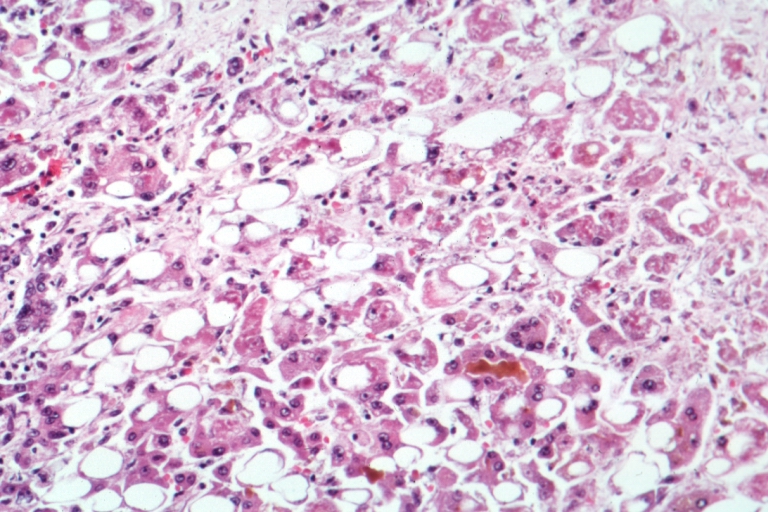Cause:
Alcoholic Liver Disease (ALD) develops as a result of prolonged and excessive alcohol consumption. When alcohol is consumed, it is metabolized by the liver, but excessive alcohol consumption can overwhelm the liver's ability to process it efficiently. This leads to liver damage and inflammation, which can progress to ALD over time.
Signs and Symptoms:
The signs and symptoms of ALD can vary depending on the severity of the disease. In the early stages, there may be no noticeable symptoms. As ALD progresses, common symptoms may include fatigue, weakness, abdominal pain or swelling, nausea, vomiting, loss of appetite, jaundice (yellowing of the skin and eyes), easy bruising or bleeding, and mental confusion.
Diagnosis:
Diagnosing ALD typically involves a combination of medical history, physical examination, blood tests to assess liver function, imaging tests such as ultrasound or CT scans, and sometimes a liver biopsy to evaluate the extent of liver damage.
Treatment:
The primary treatment for ALD involves abstaining from alcohol consumption to prevent further liver damage and allow the liver to heal. Additionally, medical interventions may be necessary to manage symptoms and complications. These may include medications to reduce inflammation and improve liver function, dietary changes to promote liver health, and lifestyle modifications such as weight loss and regular exercise.
Complications:
If left untreated, ALD can progress to more severe liver conditions such as alcoholic hepatitis, liver fibrosis, and cirrhosis, which can be life-threatening. Complications of ALD may include liver failure, portal hypertension (high blood pressure in the liver), ascites (accumulation of fluid in the abdomen), hepatic encephalopathy (brain dysfunction due to liver failure), and an increased risk of liver cancer.
Prevention:
The most effective way to prevent ALD is to avoid excessive alcohol consumption. Moderation is key, and individuals should adhere to recommended guidelines for alcohol consumption, which vary by country but generally advise no more than one drink per day for women and two drinks per day for men. Seeking help and support for alcohol addiction or dependence is crucial for preventing and managing ALD.
In conclusion, Alcoholic Liver Disease (ALD) is a serious and potentially life-threatening condition that develops due to chronic and excessive alcohol consumption. Early recognition, cessation of alcohol intake, and appropriate medical management are essential for preventing progression and improving outcomes for individuals with ALD.

